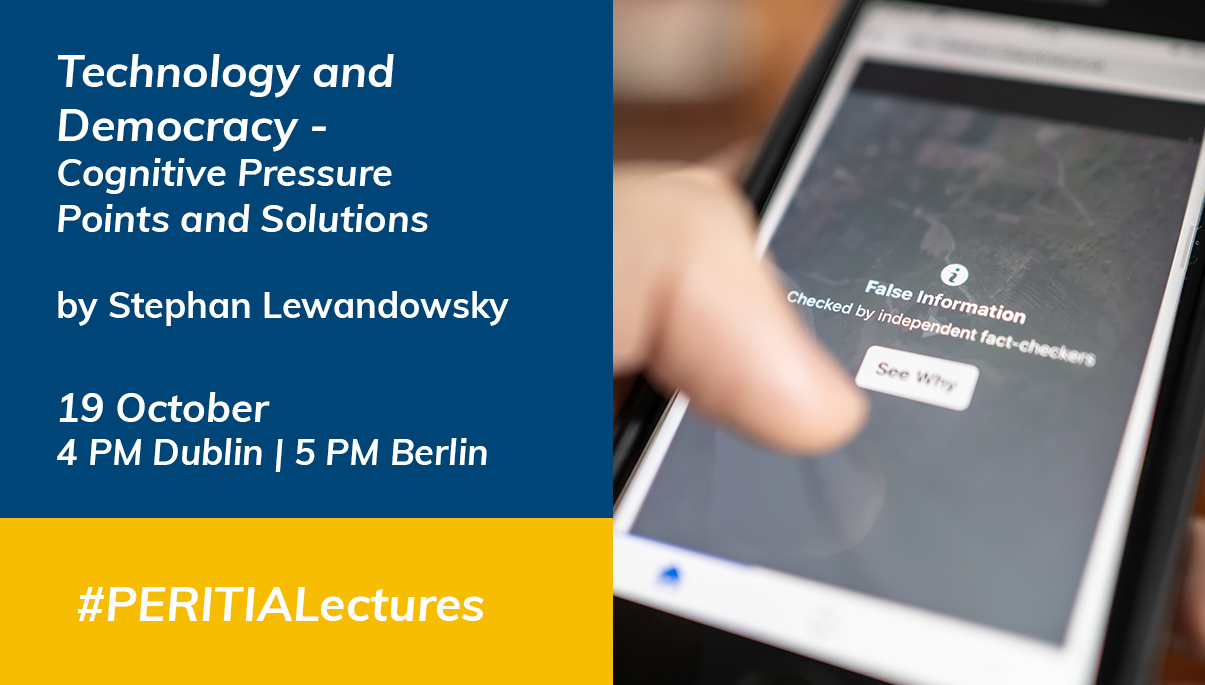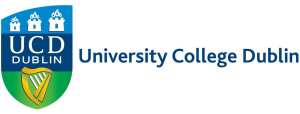PERITIA Lecture 8: Technology and Democracy – Cognitive Pressure Points and Solutions
Democracy is under threat around the world including in Europe. How does the online information landscape contribute to that threat? Everyone talks about misinformation online, but what is really happening? Are citizens really drenched in misinformation and are they affected by it? Do social media really polarize societies? And if so, is regulation the answer?
Answers to those questions require an understanding of how people process information online and how their vulnerabilities might be exploited. I propose that there are several systematic pressure points between online architectures and human cognition. I highlight two pressure points that may engender a threat to democracy:
First, your attention online is worth money—a lot of money—to advertisers, and so the online economy is optimized to attract and capture your attention. Platforms make money while you hang around to consume more information. The quality of that information is of little concern to the platforms.
Second, virtually everything you see on the internet is curated by algorithms (e.g., the newsfeed on Facebook or Twitter). These algorithms are designed by platforms without public accountability or auditing, with the primary intent of keeping you engaged longer. Thus, if extremist and conspiratorial content can keep you engaged longer, then there is an incentive for platforms to show you that content.
Those pressure points can imperil our democracy when people are being radicalized or are presented with misinformation not because they want to, but because platforms are making money by facilitating it. Only through understanding of those pressure points between how humans think and how information is presented online can we hope to change anything.
I review the space of available solutions, focusing on the notion of “inoculation”, which involves providing people with the skills to avoid being misled by low-quality information.
ABOUT THE SPEAKER
Stephan Lewandowsky is a cognitive scientist at the University of Bristol. He was an Australian Professorial Fellow from 2007 to 2012, and was awarded a Discovery Outstanding Researcher Award from the Australian Research Council in 2011. He held a Revesz Visiting Professorship at the University of Amsterdam in 2012, and received a Wolfson Research Merit Fellowship from the Royal Society upon moving to the UK in 2013. He was appointed a Fellow of the Academy of Social Science (UK) and a Fellow of the Association of Psychological Science in 2017. In 2016, he was appointed a fellow of the Committee for Skeptical Inquiry for his commitment to science, rational inquiry and public education. In 2019, he received a Humboldt Research Award from the Humboldt Foundation in Germany.
His research examines people’s memory, decision making, and knowledge structures, with a particular emphasis on how people update their memories if information they believe turn out to be false. This has led him to examine the persistence of misinformation and spread of “fake news” in society, including conspiracy theories. He is particularly interested in the variables that determine whether or not people accept scientific evidence, for example surrounding vaccinations or climate science.
He has published more than 220 scholarly articles, chapters, and books, including numerous papers on how people respond to corrections of misinformation and what variables determine people’s acceptance of scientific findings. (See www.cogsciwa.com for a complete list of scientific publications.) His research is currently funded by the European Research Council, the EU’s Horizon 2020 programme, and the Volkswagen Foundation.
Professor Lewandowsky also frequently appears in print and broadcast media and has contributed nearly 90 opinion pieces to the global media on issues related to his research.
READING MATERIAL
Technology and Democracy: Understanding the influence of online technologies on political behaviour and decision-making
https://publications.jrc.ec.europa.eu/repository/handle/JRC122023
#PERITIA LECTURES
PERITIA launched a series of public lectures around the topic of ‘[Un]Truths: Trust in an Age of Disinformation’. Read more about the upcoming lectures here.
EVENT DATE
19 October 2021
4 PM Dublin
5 PM Berlin
7 PM Yerevan






